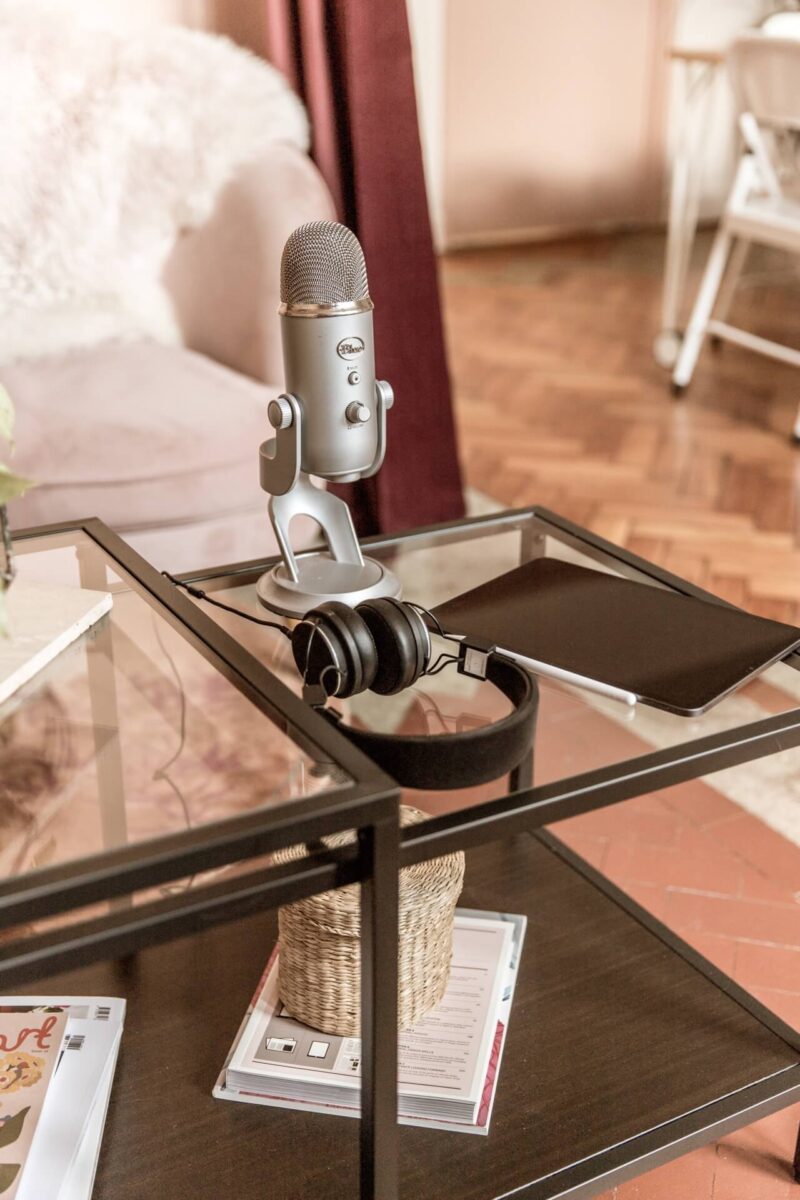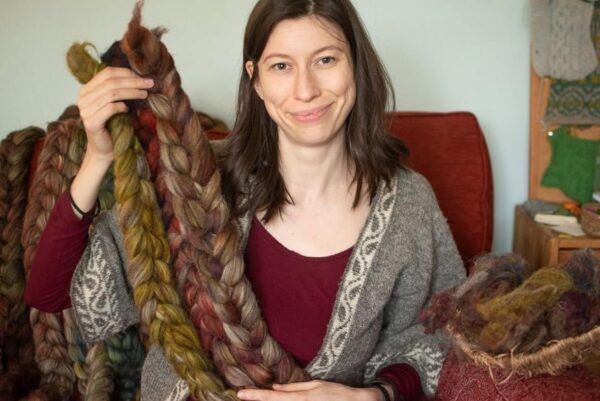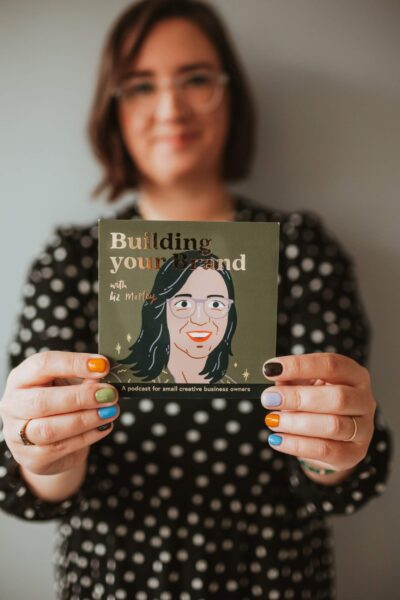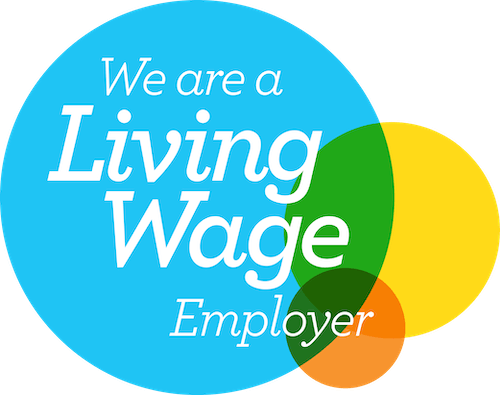Being on podcasts gives you lots of lovely backlink opportunities, but hold your horses for a sec – this is not me telling you to pitch to as many podcasts as you can physically fit into your schedule. No way José.
Whether it’s speaking on podcasts as a form of PR and to improve Studio Cotton’s SEO (check out founder Aime’s playlist of appearances) or listening to podcasts about 90s films as we fall asleep (such as my favourite, Mummy Dearest), we just think podcasts are brilliant.
(A quick translation of those pesky abbreviations: PR= public relations, and SEO = search engine optimisation.)
It’s probably best we focus on the small business benefits of podcasts here, rather than pure nostalgia – but if you do want to chat about that, feel free to message me on Instagram about your favourite 90s movie.
The best way to go about being featured on a podcast is to find podcasts which relate to your small business in some way, ones that you think you could contribute to, and pitch to them.
To help all you pitchers out, we asked a few of our podcasting pals what they don’t like to see in podcast pitches.
1. Making your podcast pitch all about you
A pitch all about how amazing they are, with 10 paragraphs of waffle about their life story/achievements, and nothing about what value they would bring to my listeners puts me off.
– Catherine Erdly – The Resilient Retail Game Plan
Yes, podcasters need to know about you and your small business… but they don’t need a life story or a self-indulgent monologue. Making your pitch all about you, without any indication on how your feature on their podcast would benefit them or their listeners can be very off-putting, it seems.
By demonstrating that you know who you’re pitching to with info (like the host’s name, podcast name, or dropping in an episode) you’re immediately getting on the host’s good side. A podcast pitch doesn’t need to be super long – just pop in 2-3 sentences about why you think you’d be a good fit.
2. Not making it about you at all
It’s frustrating if they don’t give enough information about them or their business, and I have to do loads of digging to find them online.
– Liz Mosley – Building Your Brand
This is the opposite of point 1, yet equally unhelpful. Many podcasters are often doing it as a side-hustle or passion project alongside running a small business, caring for a family, seeing pals, lying down, and other general life stuff that we all need to do.
They don’t have unlimited time to research who you are, so try to include a few helpful points about your experience and why you might be a good guest, maybe with a link to your about page or any other podcasts you’ve guested on.

3. See-through schmoozing
If it’s obvious that they haven’t listened to a single episode of the podcast, or they tell me what a big fan they are of my podcast but don’t even follow me on social media – that’s a red flag.
– Liz Mosley – Building Your Brand
Everyone loves praise, right? We certainly do. It’s hard for us to get through the working day without a bit of cheerleading.
But no one likes a fake compliment, and it’s pretty easy to tell when someone isn’t being genuine and is just trying to get what they want from you.
Instead, butter up your podcast host with some heartfelt comments and compliments – it’s much easier to do this with creators you already follow and respect.
4. Presumptuous and pushy podcast pitches
It’s off-putting when a pitch is overly presumptuous e.g. saying “let’s get this scheduled in – here’s a link to my calendar” before I’ve even shown any interest.
– Catherine Erdly – The Resilient Retail Game Plan
I don’t it when they act like they are doing me a favour by offering to be a guest on my podcast.
– Liz Mosley – Building Your Brand
It’s understandable to want to make it as easy as possible for a podcast host to book you in, but there’s a fine line between being helpful and being pushy. It’s also not hot to presume – it borders on arrogance.
Maybe wait until the podcaster enthusiastically responds before sending that calendar link, don’t assume you’ll be booked, and don’t be too disheartened if they say no. It’s probably just not the right fit – there are plenty more podcasts in the sea, or however that saying goes.
5. An impersonal, jargon-filled podcast pitch
I’m not a fan of pitch full of generic jargon that definitely shows they aren’t in my niche, or, to be honest, most pitches that come through an agency and not directly from the person themselves. The worst one said “Hello [First Name]”.
– Catherine Erdly – The Resilient Retail Game Plan
I know everyone will have said generic or badly researched pitches – which I agree with – but to add a little differentiation to the article I’ll say: at the Business Proposal Podcast we tend not to pick up pitches which are super formulaic.
Obviously it’s great to have an intro to what you do and the specifics of your speciality, but when people pitch us the entire episode format (e.g. “5 ways to make money as a freelance photographer” or something like that), it feels a bit like there’s no creativity or casual chat.
– Ellie Kime – Eleanor Mollie / RE: The Podcast
It makes sense to have an email template if you’re contacting multiple hosts, but make sure to tailor your correspondence specifically to each podcast.
Leave out that meaningless jargon and talk like a human. Be yourself, not who you think you should be. Podcast hosts are people, and people like to talk to other people on a real level.
Podcast hosts are also inherently chatty people (it goes with the territory, duh) so let them be chatty with you.

6. A clear lack of research about the podcast
It’s obvious when someone totally un-related to most of my guests pitches to me (e.g. someone who runs a marketing agency for tech firms), or I get pitches from US people when my podcast clearly says for UK businesses.
– Catherine Erdly – The Resilient Retail Game Plan
The biggest red flag to me is when it’s obvious they have never listened to the podcast and don’t really know what it’s about. Usually this is because people have sent out blanket podcast requests – and it’s usually a flag they’re not a good fit.
I want people on that know what I’m about and what I’m trying to achieve with my podcast – people who ‘get it’.
When it comes to selecting guests, I have very strict rules about what makes the cut – and it all revolves around my audience, and giving them the best experience. I only ever select guests that: 1) are relevant to my audience, 2) have an interesting story to tell, 3) (and this one is the most important) are good speakers.
Now 3) is nothing to be scared of – you don’t need to be a professional speaker to apply – but when I worked in radio we we always looking for ‘good speakers’ which basically meant people that were confident enough to tell their story.
Usually anyone that is applying to be on my podcast is confident enough to tell their story, so this is a given if they approach me. But this is also the reason why I would never try to persuade anyone to be on if they felt really nervous about it, as I’m not sure it would be a great listening experience.
– Victoria Brown – Creative Slurp
That’s some really great advice from Victoria, and I’m sure it’ll ring true for many podcast hosts, although their specific guidelines will vary.
This point kinda leads on from a couple of the previous ones, and also nicely rounds-out the point of this whole blog post, which is basically do your research.
Yes, it might seem like it’ll take up more of your time, but really it saves everyone time overall, because you won’t end up pitching to a podcast that you’re not a good fit for.
And instead, you’ll end up with lots of dreamy podcast matches, juicy PR and potential networking, and alllll the lovely SEO backlink cherries-on-the-cake.
PS – we put this blog post together while developing our podcast website packages, which will include a nifty podcast pitching guidelines page, which should minimise the number of bad pitches a podcaster receives.
You can see one in action on Nikky Lyle’s awesome website (yes, we did build it) for her brilliant podcast Industry Leaders, which is about… well, y’know.
Want some suggestions of podcasts to listen to (and maybe pitch to)? Check out our blog post 9 stellar small business podcasts handpicked by small business owners, written with the help of our Studio Cotton Clubhouse members.























